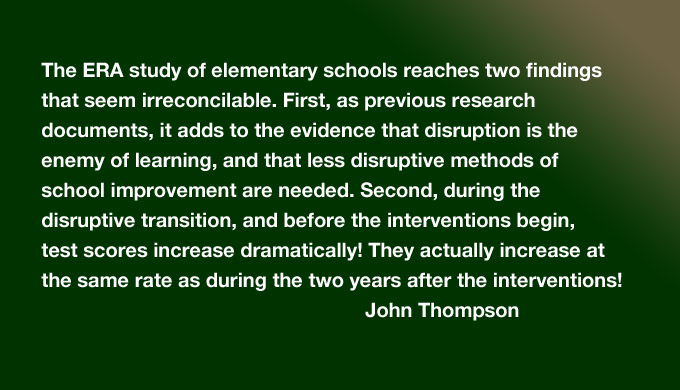Is Educational Research Validating Corrupt Practices in New Orleans?

By John Thompson.
In the aftermath of the Trump election, and as our “post fact” politics becomes even worse, it will be interesting to see what school reformers do. Will they double down on their truth-challenged spin on charter schools, or will they become more circumspect in using evidence?
The latest report by the Education Research Association on New Orleans school reform, “Extreme Measures: When & How School Closures & Charter Takeovers Benefit Students” stresses the benefits of charter takeovers of failing schools. This is the third in a series of posts on the way that those so-called student performance gains have been exaggerated. The first two posts are here and here.
The technical appendix to the Education Research Association report of school closures and takeovers in New Orleans states its “main theory” that “the effects of these interventions are driven by the changes in school quality experienced by students.” The ERA’s other theory, I would add, is that quantitative analyses that mostly rely on test scores can assess changes in the quality of actual schools, full of flesh-and-blood educators and students, often without qualitative research into what actually is happening in those buildings.
My big complaint with the ERA’s work is that this assumption is especially dubious in a district with an unflinching focus on rising test scores. As the ERA acknowledges, “Research on the authorization decisions of the RSD suggests that the decisions are based almost entirely on test scores.” I suspect it underestimates the way that such a policy can corrupt so many aspects of schooling.
The ERA acknowledges, “Based on theory and prior evidence, we expect the effects to be dynamic, starting with an initial disruption around the time of announcement and followed by null or positive effects as students settle into new schools.” After all, it is implausible that the quality of education and the amount of Is Educational Research Validating Corrupt Practices in New Orleans? - Living in Dialogue:

